This one of Earth's 5 spheres contains all of the gases that form Earth's outermost layer.
The Atmosphere
Animal actions, freezing/thawing, abrasion from wind or water, and plant roots are all examples of this kind of weathering.
Mechanical
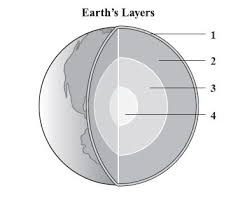 Name the 4 layers of Earth
Name the 4 layers of Earth
Crust, Mantle, Outer core, Inner core
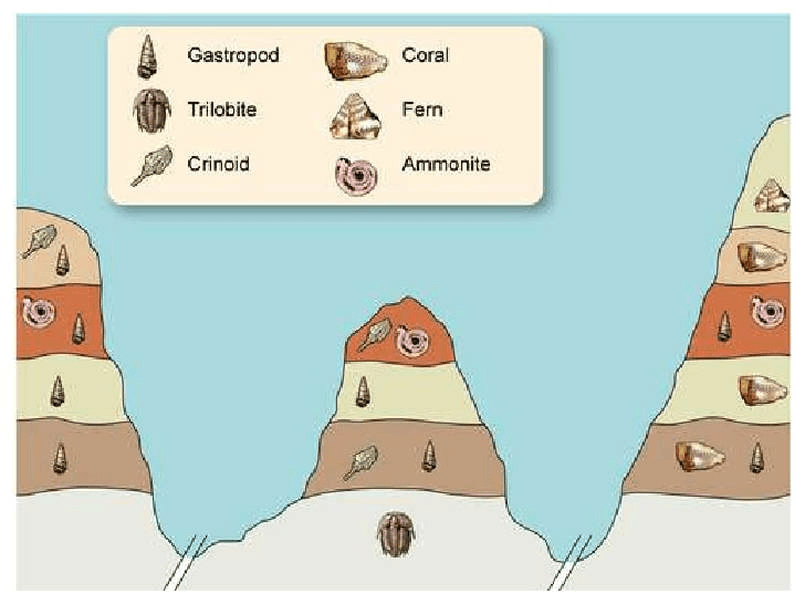 Which fossil is the oldest?
Which fossil is the oldest?
Trilobite
What is the difference between an asteroid and a comet?
Asteroids are small rocky objects found mostly between Mars and Jupiter. Comets are balls of rock and ice that form tails as they near the sun.
When liquid at Earth's surface is heated enough and changes to a gas, this process is called:
Evaporation
When the particles formed from erosion are layed down somewhere.
Deposition
This type of rock forms from cooled magma or lava.
Igneous rock
What does the Law of Superposition state?
That in undisturbed rock layers, the oldest layer is at the bottom and the youngest is at the top.
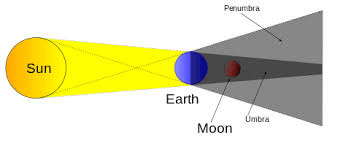 This type of eclipse occurs when Earth moves between moon and sun (moon is in Earth's shadow)
This type of eclipse occurs when Earth moves between moon and sun (moon is in Earth's shadow)
Lunar eclipse
The transfer of heat by electromagnetic waves.
Radiation
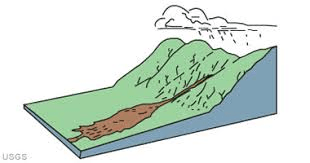 This image shows a mass movement called a:
This image shows a mass movement called a:
Mudflow
Weathering and Erosion -
Transportation -
Deposition -
Compaction -
Cementation -
This process forms what kind of rocks?
Sedimentary
What are the 3 eras of Earth's history in order from Oldest to most recent?
Paleozoic
Mesozoic
Cenozoic
A star's _______ brightness is its brightness as seen from Earth. Because the sun is so close to Earth, it appears bright to us.
Apparent
This can bring heavy rains and flooding to parts of the US (opposite of La Nina)
El Nino
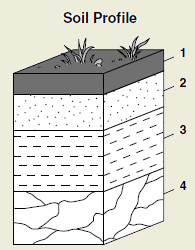
What is the name of layer 3?
Subsoil
What process in the rock cycle will change a sedimentary rock to an igneous rock?
Melting
What is an event during which many types of living things become extinct at the same time?
Mass extinction
All stars are huge spheres of super-hot glowing gases. The main gas that forms stars is:
Hydrogen
A scientists who studies and predicts weather.
Meteorologist
A stream or river that flows into a larger river is called a:
tributary
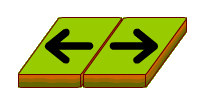 What type of boundary is pictured here?
What type of boundary is pictured here?
Divergent
Emissions from cars and trucks react in the sunlight and produce a toxic form of oxygen called:
Ozone
About 9.46 trillion kilometers is the distance light travels in one year. This is called a:
light year
A long period with little or no rainfall.
Drought
Glaciers are part of Earth's ______, which includes all the frozen water on earth. They change earth's surface as they move slowly over the land.
Cryosphere
This type of volcano has a slow, steady eruption in which lava flows out and builds up over a broad area. This is how Hawaii was formed.
Oil, coal, metals, natural gases are all called nonrenewable resources. Why?
They are made by the Earth and used by humans faster than they can be replaced.
This theory of how the universe formed says that the universe formed in an instant due to an enormous explosion.
The Big Bang Theory